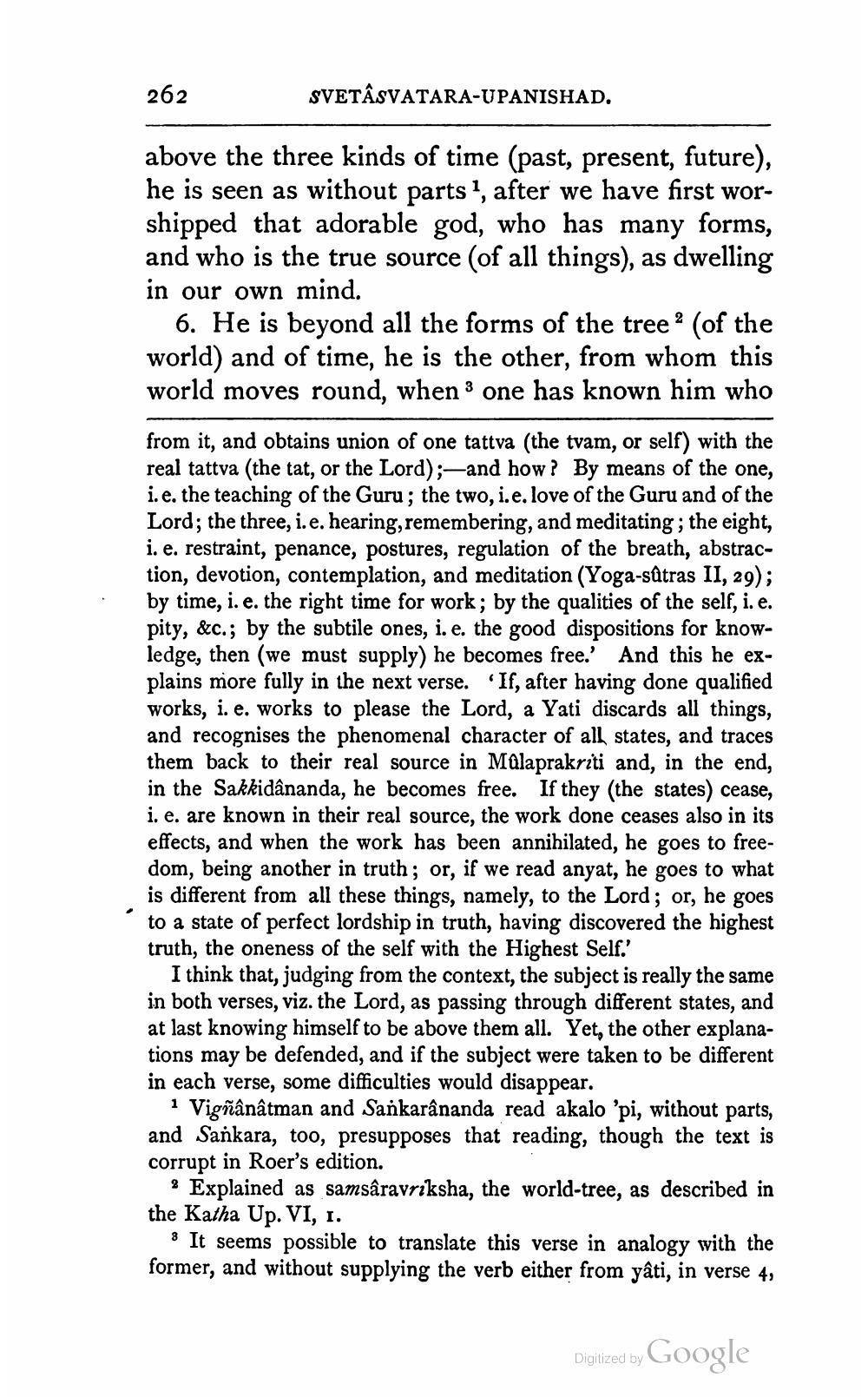________________
262
SVETASVATARA-UPANISHAD.
above the three kinds of time (past, present, future), he is seen as without parts?, after we have first worshipped that adorable god, who has many forms, and who is the true source (of all things), as dwelling in our own mind.
6. He is beyond all the forms of the tree? (of the world) and of time, he is the other, from whom this world moves round, when 3 one has known him who
from it, and obtains union of one tattva (the tvam, or self) with the real tattva (the tat, or the Lord);—and how? By means of the one, i.e, the teaching of the Guru; the two, i.e. love of the Guru and of the Lord; the three, i.e. hearing, remembering, and meditating ; the eight, i. e. restraint, penance, postures, regulation of the breath, abstraction, devotion, contemplation, and meditation (Yoga-sâtras II, 29); by time, i.e. the right time for work; by the qualities of the self, i. e. pity, &c.; by the subtile ones, i. e. the good dispositions for knowledge, then (we must supply) he becomes free.' And this he explains more fully in the next verse. "If, after having done qualified works, i. e. works to please the Lord, a Yati discards all things, and recognises the phenomenal character of all states, and traces them back to their real source in Malaprakriti and, in the end, in the Sakkidananda, he becomes free. If they (the states) cease, i. e. are known in their real source, the work done ceases also in its effects, and when the work has been annihilated, he goes to freedom, being another in truth; or, if we read anyat, he goes to what is different from all these things, namely, to the Lord; or, he goes to a state of perfect lordship in truth, having discovered the highest truth, the oneness of the self with the Highest Self.'
I think that, judging from the context, the subject is really the same in both verses, viz. the Lord, as passing through different states, and at last knowing himself to be above them all. Yet, the other explanations may be defended, and if the subject were taken to be different in each verse, some difficulties would disappear.
1 Vigñânâtman and Sankarananda read akalo 'pi, without parts, and Sankara, too, presupposes that reading, though the text is corrupt in Roer's edition.
3 Explained as samsaravriksha, the world-tree, as described in the Katha Up. VI, 1.
3 It seems possible to translate this verse in analogy with the former, and without supplying the verb either from yâti, in verse 4,
Digitized by Google




